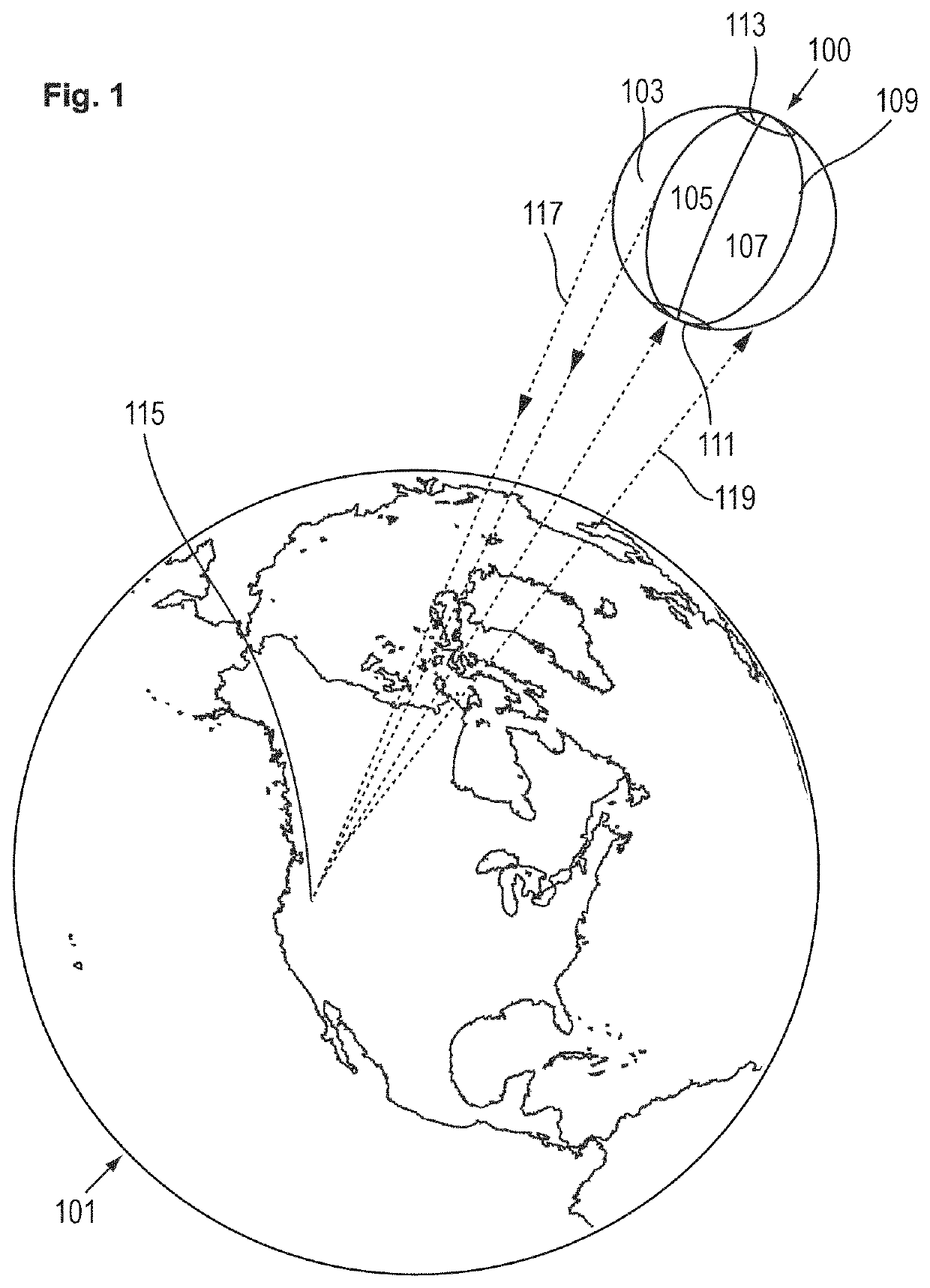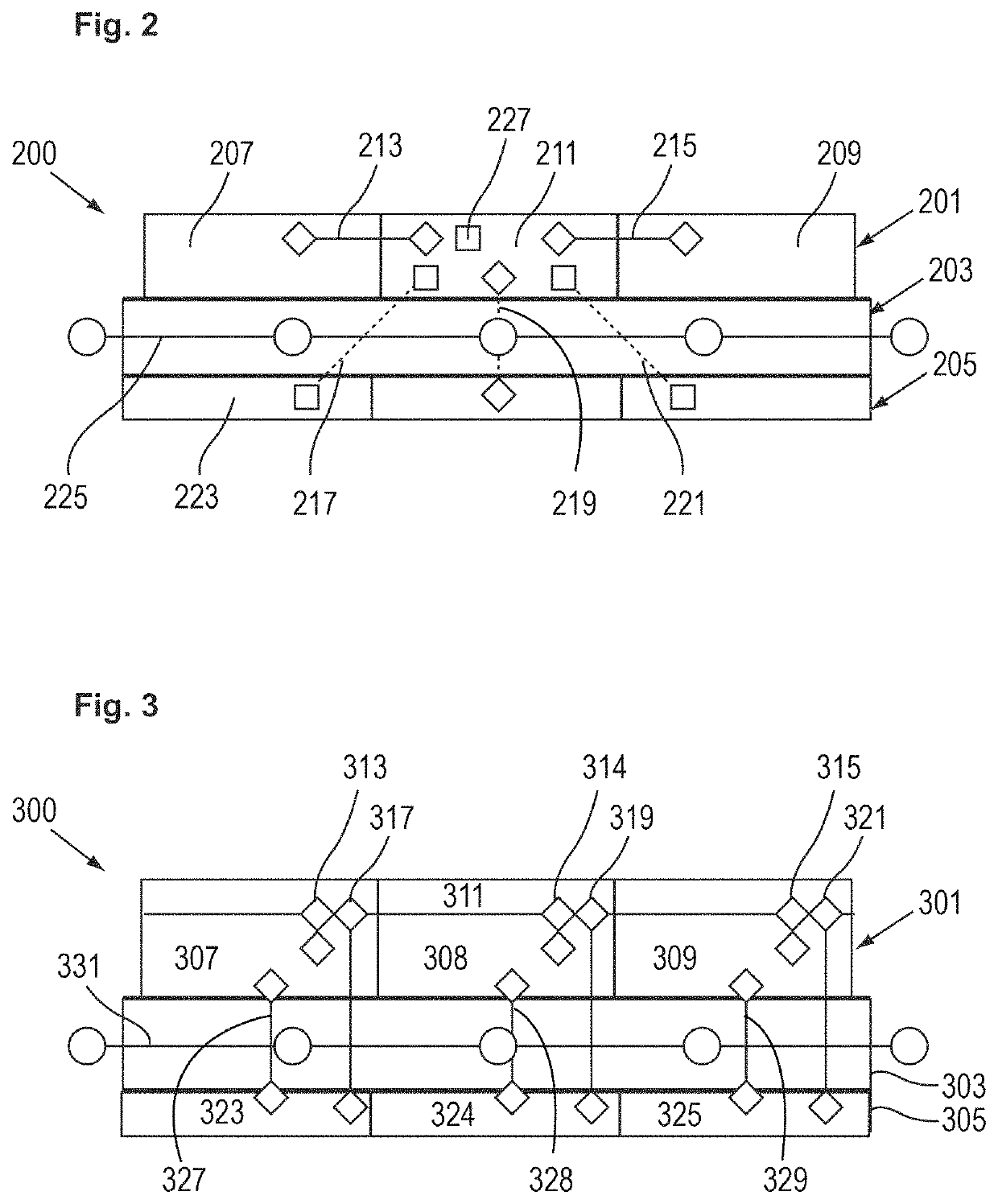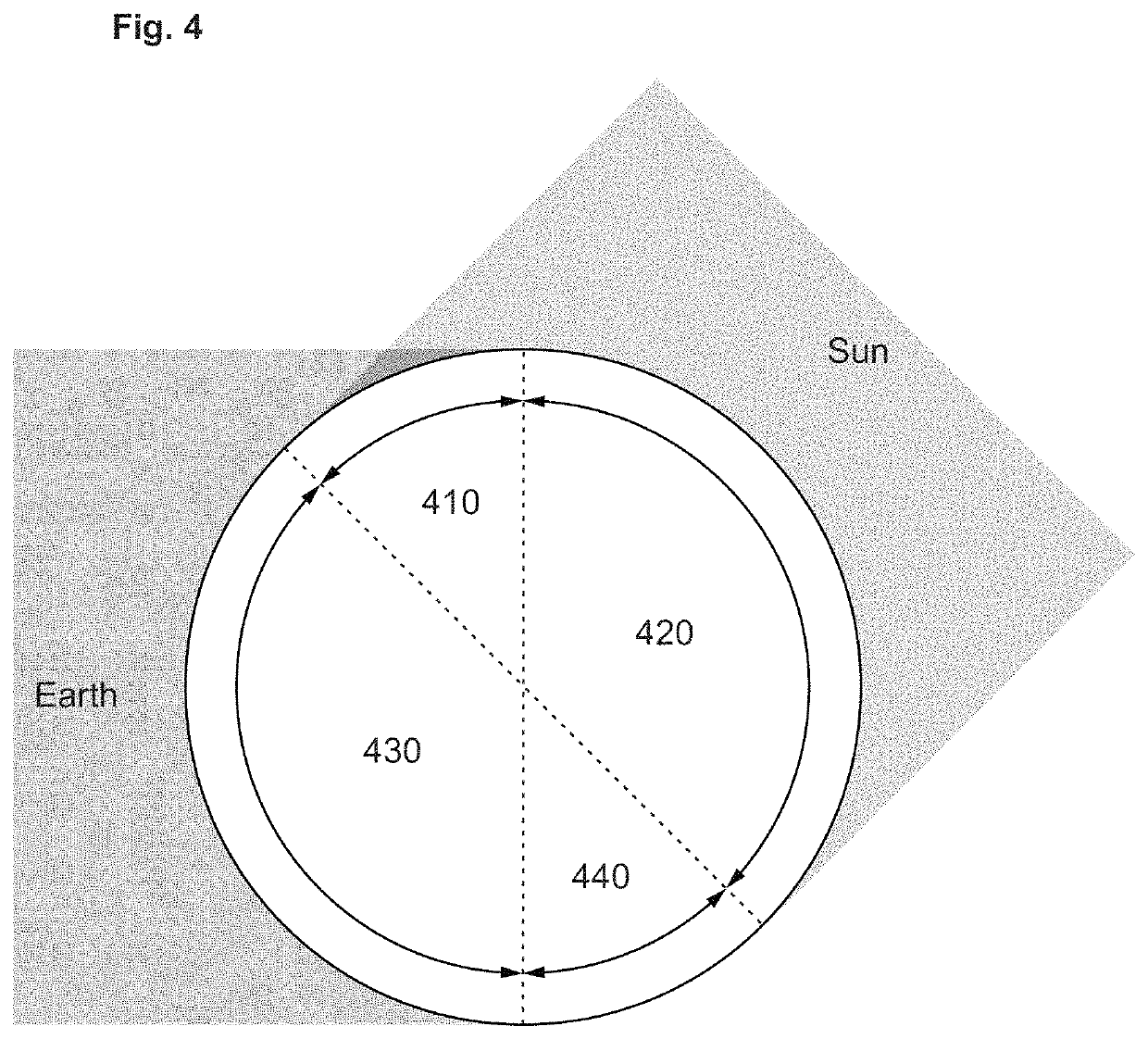System and method for collection and distribution of space based solar power
a solar power and space technology, applied in the field of solar power generation and transmission, can solve the problems of high capital cost of systems, affecting the efficiency of solar power generation, and preventing the growth and development of solar power as a primary energy source, so as to achieve the effect of continuously and efficiently generating energy and transmitting
- Summary
- Abstract
- Description
- Claims
- Application Information
AI Technical Summary
Benefits of technology
Problems solved by technology
Method used
Image
Examples
Embodiment Construction
[0017]Power Star™ System
[0018]The embodiment of FIG. 1 provides solar power collection balloon 100, which is inflated in geostationary altitude above the Earth 101. In this embodiment solar power collection balloon 100 has a spherical shape that is assembled by connecting several gores 103, 105, 107 of solar microwave fabric 200 with rounded sides 109 and pointed ends 111. Polar caps 113 are placed over the pointed ends 111. At least one rectenna beacon 115 is erected on Earth 101 to receive a power transmission 117 and transmit a beacon radiation 119. In this embodiment, the solar power collection balloon 100 is comprised of solar-microwave fabric 200.
[0019]Solar-Microwave Fabric 200
[0020]FIG. 2 shows a cross-section of an embodiment of the solar-microwave fabric 200. In this embodiment, the solar-microwave fabric 200 has an exterior surface layer 201, a substrate layer 203, and an inner surface layer 205. Photovoltaic cells 207 and 209 are printed on the exterior surface layer ‘20...
PUM
 Login to View More
Login to View More Abstract
Description
Claims
Application Information
 Login to View More
Login to View More - R&D
- Intellectual Property
- Life Sciences
- Materials
- Tech Scout
- Unparalleled Data Quality
- Higher Quality Content
- 60% Fewer Hallucinations
Browse by: Latest US Patents, China's latest patents, Technical Efficacy Thesaurus, Application Domain, Technology Topic, Popular Technical Reports.
© 2025 PatSnap. All rights reserved.Legal|Privacy policy|Modern Slavery Act Transparency Statement|Sitemap|About US| Contact US: help@patsnap.com



